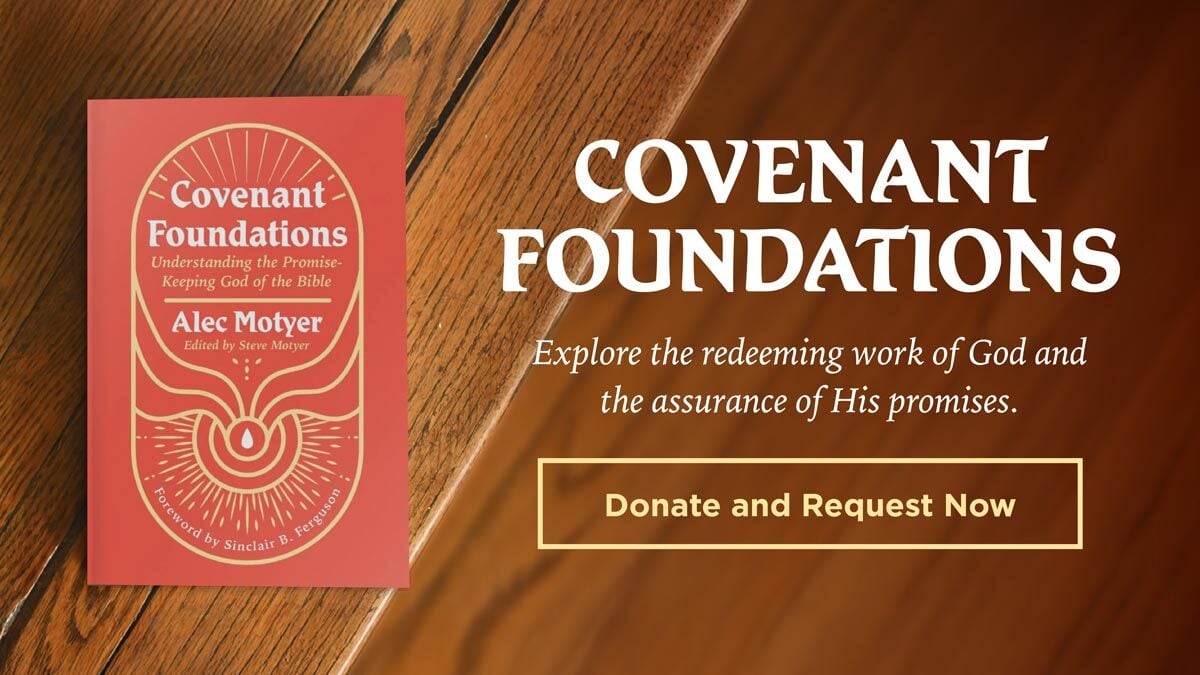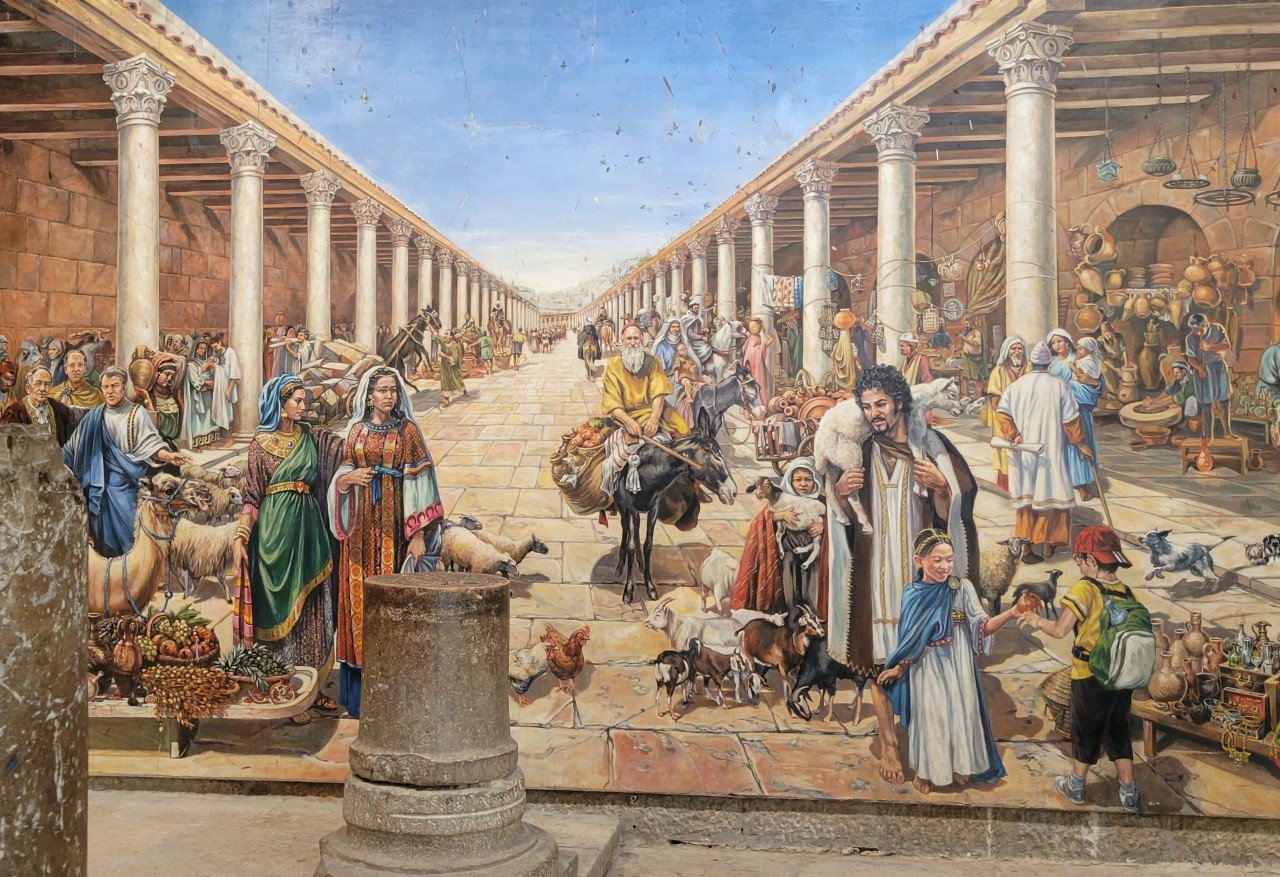This article is part of the Key Bible Verses series.
All commentary notes adapted from the ESV Study Bible.
1. Genesis 2:2–3
And on the seventh day God finished his work that he had done, and he rested on the seventh day from all his work that he had done. So God blessed the seventh day and made it holy, because on it God rested from all his work that he had done in creation. Read More
These verses bring to a conclusion the opening section of Genesis by emphasizing that God has completed the process of ordering creation. The repeated comment that God rested does not imply that he was weary from labor. The effortless ease with which everything is done in ch. 1 suggests otherwise. Rather, the motif of God’s resting hints at the purpose of creation. As reflected in various ancient Near Eastern accounts, divine rest is associated with temple building. God’s purpose for the earth is that it should become his dwelling place; it is not simply made to house his creatures. God’s “activities” on this day (he finished, “rested,” “blessed,” “made it holy”) all fit this delightful pattern. The concept of the earth as a divine sanctuary, which is developed further in Gen. 2:4–25, runs throughout the whole Bible, coming to a climax in the future reality that the apostle John sees in his vision of a “new heaven and a new earth” in Rev. 21:1–22:5. God blessed the seventh day and made it holy (Gen. 2:3). These words provide the basis for the obligation that God placed on the Israelites to rest from their normal labor on the Sabbath day (see Ex. 20:8–11). There is no evening-followed-by-morning refrain for this day, prompting many to conclude that the seventh day still continues (which seems to underlie John 5:17; Heb. 4:3–11).
2. Exodus 20:8–11
Remember the Sabbath day, to keep it holy. Six days you shall labor, and do all your work, but the seventh day is a Sabbath to the LORD your God. On it you shall not do any work, you, or your son, or your daughter, your male servant, or your female servant, or your livestock, or the sojourner who is within your gates. For in six days the LORD made heaven and earth, the sea, and all that is in them, and rested on the seventh day. Therefore the LORD blessed the Sabbath day and made it holy. Read More
Israel is to remember the Sabbath day by keeping it holy (Ex. 20:8). The Lord had already begun to form the people’s life in the rhythm of working for six days(Ex. 20:9) and resting on the seventh day as a Sabbath (Ex. 20:10) through the instructions for collecting manna (see Ex. 16:22–26). Here the command is grounded further in the way that it imitates the Lord’s pattern in creation (Ex. 20:11; see Gen. 2:1–3). Every aspect of Israel’s life is to reflect that the people belong to the Lord and are sustained by his hand. The weekly pattern of work and rest is to be a regular and essential part of this (see Ex. 31:12–18). In Deut. 5:15, Moses gives another reason for observing the day: it recalls their redemption from slavery in Egypt.
ESV Study Bible
The ESV Study Bible—created by a diverse team of 95 leading Bible scholars and teachers—features 20,000 study notes, 80,000 cross–references, 200+ charts, 50+ articles, 240 full–color maps and illustrations, and more.
3. Psalm 92:1–4
It is good to give thanks to the LORD,
to sing praises to your name, O Most High;
to declare your steadfast love in the morning,
and your faithfulness by night,
to the music of the lute and the harp,
to the melody of the lyre.
For you, O LORD, have made me glad by your work;
at the works of your hands I sing for joy. Read More
Weekly Sabbath Worship Is Good. One of the most basic features of worship on the Sabbath day is celebrating God’s greatness in presiding over his creation and his goodness toward his faithful. The words give thanks, sing praises, declare, and sing for joy all describe the significance of the songs sung in gathered worship, along with musical accompaniment (lute, harp, lyre). The songs honor God for what he has revealed about himself, recalling Ex. 34:5–7, where God explained his name (Ps. 92:1), especially his benevolence toward his people (he is abounding in steadfast love and faithfulness).
4. Isaiah 56:2
Blessed is the man who does this,
and the son of man who holds it fast,
who keeps the Sabbath, not profaning it,
and keeps his hand from doing any evil. Read More
The Sabbath is a covenant sign that represents a lifestyle of devotion to the Lord, for it requires the practical reorganization of every week around him (cf. Ex. 31:12–17; Ezek. 20:18–20). True observance of the Sabbath entails not just refraining from work but also refraining from doing any evil.
5. Romans 14:5–6
One person esteems one day as better than another, while another esteems all days alike. Each one should be fully convinced in his own mind. The one who observes the day, observes it in honor of the Lord. The one who eats, eats in honor of the Lord, since he gives thanks to God, while the one who abstains, abstains in honor of the Lord and gives thanks to God. Read More
The weak thought some days were more important than others. Given the Jewish background here (Rom.14:14), the day that is supremely in view is certainly the Sabbath. The strong think every day is the same. Both views are permissible. Each person must follow his own conscience. What is remarkable is that the Sabbath is no longer a binding commitment for Paul but a matter of one’s personal conviction. Unlike the other nine commandments in Ex. 20:1–17, the Sabbath commandment seems to have been part of the “ceremonial laws” of the Mosaic covenant, like the dietary laws and the laws about sacrifices, all of which are no longer binding on new covenant believers (see also Gal. 4:10; Col. 2:16–17). However, it is still wise to take regular times of rest from work, and regular times of worship are commanded for Christians (Heb. 10:24–25; cf. Acts 20:7).
Whether one observes a special day, or eats all foods, or abstains from some foods, the important thing is the honor of the Lord and to give thanks to God.
6. Matthew 12:5–8
Or have you not read in the Law how on the Sabbath the priests in the temple profane the Sabbath and are guiltless? I tell you, something greater than the temple is here. And if you had known what this means, ‘I desire mercy, and not sacrifice,’ you would not have condemned the guiltless. For the Son of Man is lord of the Sabbath. Read More
The fact that priests, in carrying out their duties, had to work on (and thus “profane”) the Sabbath, but were guiltless in doing so, shows that God made allowances within the law.
something greater. The Sabbath points to Christ (see Matt.12:8) and to the “rest” he gives from the impossible task of earning salvation by good works (Matt. 11:28).
the Son of Man is lord of the Sabbath. Jesus does not challenge the Sabbath law itself but rather the Pharisees’ interpretation of it. As Messiah, Jesus authoritatively interprets every aspect of the law (Matt. 5:17–48) and here points out the Pharisees’ blindness to the actual intent of the Sabbath—to bring rest and well-being. This final argument in response to the Pharisees’ challenge (Matt. 12:2) is the decisive argument—that because of who Jesus is, he has the authority to interpret the law.
7. Mark 2:27–28
And he said to them, “The Sabbath was made for man, not man for the Sabbath. So the Son of Man is lord even of the Sabbath.” Read More
The Sabbath was made for man. Jesus next emphasizes that man is not to be confined by the Sabbath but rather that the Sabbath is given as a gift to man (for spiritual and physical refreshment). Again Jesus emphasizes his authority as Son of Man. If the Sabbath is for the benefit of mankind, and if the Son of Man is Lord over all mankind, then the Son of Man is surely lord even of the Sabbath.
8. John 5:16–17
And this was why the Jews were persecuting Jesus, because he was doing these things on the Sabbath. But Jesus answered them, “My Father is working until now, and I am working.” Read More
Jesus’ Jewish opponents were putting their merely human religious tradition above genuine love and compassion for others, which the OT commanded (e.g., Lev. 19:18) and Jesus exemplified. It was Jesus, not these Jews, who was truly obeying the Scriptures.
My Father suggests a far closer relationship with God than other people had (see 20:17). When Jesus says, “My Father is working until now, and I am working,” he implies that he, like the Father, is lord over the Sabbath. Therefore this is a claim to deity. These Jews recognize what he is claiming (see John 5:18). While Gen. 2:2–3 teaches that God rested (Hb. shabat) on the seventh day of creation, Jewish rabbis agreed that God continually upholds the universe, yet without breaking the Sabbath. (In John 7:22–23 Jesus makes a different argument about healing on the Sabbath.)
9. Colossians 2:16–17
Therefore let no one pass judgment on you in questions of food and drink, or with regard to a festival or a new moon or a Sabbath. These are a shadow of the things to come, but the substance belongs to Christ. Read More
food and drink . . . a festival or a new moon or a Sabbath. The false teacher(s) were advocating a number of Jewish observances, arguing that they were essential for spiritual advancement.
a shadow of the things to come. The old covenant observances pointed to a future reality that was fulfilled in the Lord Jesus Christ (cf. Heb. 10:1). Hence, Christians are no longer under the Mosaic covenant (cf. Rom. 6:14–15; 7:1–6; 2 Cor. 3:4–18; Gal. 3:15–4:7). Christians are no longer obligated to observe OT dietary laws (“food and drink”) or festivals, holidays, and special days (“a festival . . . new moon . . . Sabbath,” Col. 2:16), for what these things foreshadowed has been fulfilled in Christ. It is debated whether the Sabbaths in question included the regular seventh-day rest of the fourth commandment, or were only the special Sabbaths of the Jewish festal calendar.
10. Hebrews 4:8–10
For if Joshua had given them rest, God would not have spoken of another day later on. So then, there remains a Sabbath rest for the people of God, for whoever has entered God’s rest has also rested from his works as God did from his. Read More
For if Joshua had given them rest. One could conceivably argue that the “rest” that the exodus generation sought was their entrance into the Promised Land. However, that entrance occurred in the days of Joshua, and Psalm 95 (with its promise of “today” entering into God’s rest) is subsequent to Joshua’s day (referred to as “so long afterward” in Heb. 4:7). Therefore, the Sabbath rest remains possible for God’s people to enter even now, in this life (Heb. 4:9). The promise of entering now into this rest means ceasing from the spiritual strivings that reflect uncertainty about one’s final destiny; it means enjoyment of being established in the presence of God, to share in the everlasting joy that God entered when he rested on the seventh day (Heb. 4:10).
Popular Articles in This Series
View All
Crossway is a not-for-profit Christian ministry that exists solely for the purpose of proclaiming the gospel through publishing gospel-centered, Bible-centered content. Learn more or donate today at crossway.org/about.












 English (US) ·
English (US) ·